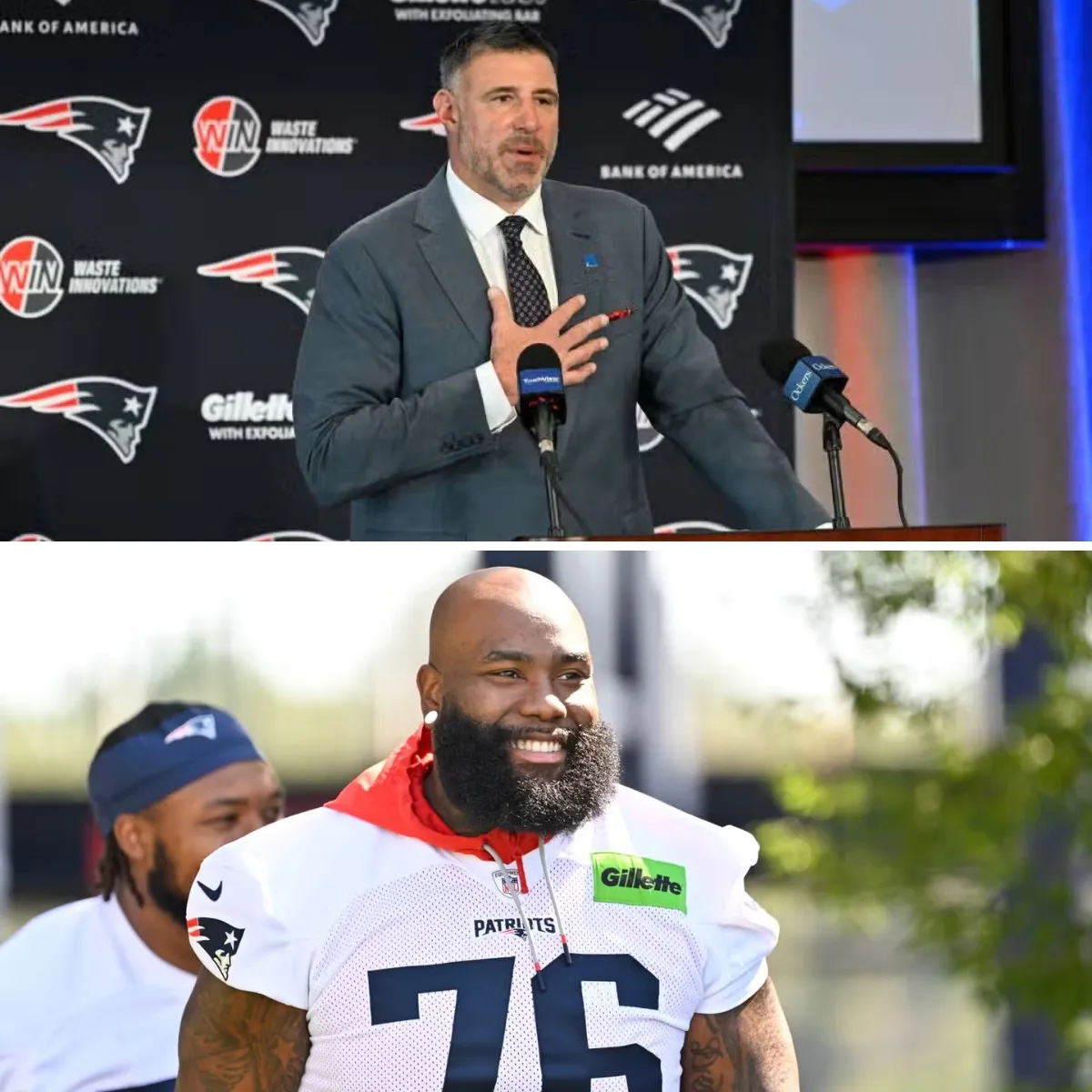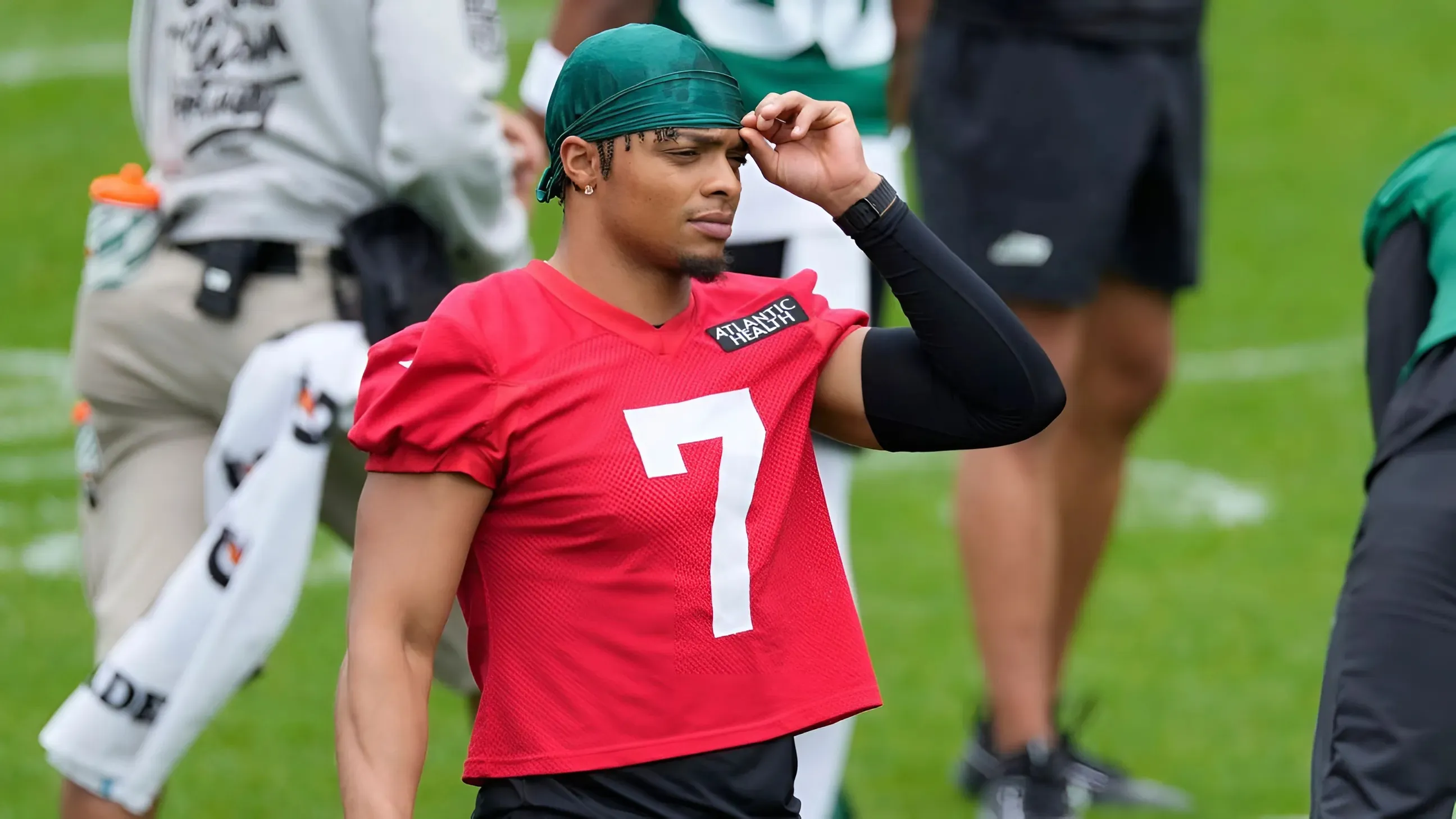In this offseason series, Athlon Sports' Doug Farrar asks the One Big Question for every NFL team that will become readily apparent when the season does begin, and the lights are at their brightest. We continue with the Chicago Bears, who haven't had a real franchise quarterback since the end of World War II, and mismanaged the process last season for Caleb Williams, the next man up to break that quarterback curse. Can new head coach Ben Johnson and his staff finally reverse that curse?
Not to get all new-agey or "woo-woo" here, but when you're a quarterback, belief is a big thing.
It's not only the belief in your own abilities — that's a primary construct. When you hit the field, you'd better have confidence that your athleticism and your acumen can align in a positive sense. That's Phase One of the process.
Beyond that, you have to have confidence in the guys blocking for you, and the guys catching your passes. The infrastructure has to work if you're to transcend all the things that can trip quarterbacks up in the NFL.
But the real difference-maker among the best quarterbacks is a belief in the overall system. The coaches, the playbook, and the counters to what defenses will throw at you in any specific situation. That's the part of success that the quarterback generally doesn't control. When you're in a situation where your coaches don't understand what you do best, and don't even try to unravel what you prefer to do under pressure, you're sunk before you even begin.
In the case of Caleb Williams, the first overall pick in the 2024 NFL draft, it was going to fail from the get-go, because Williams' system was born to die. The Chicago Bears gave Williams a below-average offensive line, some pretty good targets, and a coaching staff that didn't have enough job security to get around to developing him as a player. Williams had three different offensive coordinators in his rookie season — Shane Waldron, Thomas Brown, and Chris Beatty — and none of them had the time to sit down with their young quarterback to deduce what would make things work best for him.
As a result, Williams' rookie year was a major disappointment. While second-overall pick Jayden Daniels of the Washington Commanders had perhaps the best rookie season any NFL quarterback has ever enjoyed in a Kliff Kingsbury-led offense that played perfectly to Daniels' strengths, Williams did the best he could with all he didn't have. He completed 361 of 562 passes for 3,541 yards, 20 touchdowns, six interceptions, and a passer rating of 87.8. Behind a patchwork offensive line, and going through his own timing issues, Williams was sacked a league-high 68 times, and overall, the Bears' offense was a disorganized disaster.
The root cause, beyond Williams' own need for development that every young quarterback has, was the help he wasn't getting.
As first reported by ESPN's Seth Wickersham, Williams' father Carl believed that Chicago was "the place quarterbacks go to die." Given the fact that the Bears have never had a quarterback throw for more than 4,000 yards in a season, and their last great quarterback was Sid Luckman (who retired after the 1950 NFL season, by the way), the elder Williams may have been on to something, and he wanted to part of the Bears selecting him.
In Wickersham's upcoming book, American Kings: A Biography of the Quarterback, it's also revealed that after the Bears did take Williams first overall, they basically showed him where the team film room was, and gave him no help at all when it came to using that film to understand what he would be doing in the NFL on offense, and how to counter the defenses he would be facing.
Obviously, this was coaching malpractice, and quite counter to what the best coaches do with their own quarterbacks. Back in 2015, when Bruce Arians was the Arizona Cardinals' head coach, I spoke with Arians, as well as quarterbacks Carson Palmer and Drew Stanton, about how well Arians was able to develop the relationship with his signal-callers — both the superstar started in Palmer, and the backup in Stanton.
“I think the one thing we always have done with all our quarterbacks is they’ve really called the game,” Arians told me. “Friday, we’ll sit down and pick out his 15–20 favorite first-and-10 plays. Saturday night before the game, we’ll sit down and go through the entire third down package and let him pick the plays, the ones he’s most comfortable with. I can call what I think is the greatest play, but if he’s not comfortable with it, it’s probably not going to work. My job is to talk him into running those once he sees the picture on the sideline. He’s a veteran guy who works extremely hard, and you just, as a coach, try to put him into a position to be comfortable and successful.”
It was a combination of positive visualization on the quarterback's part, with an understanding on the coach's part of what the player is set up to do best, and how else is it supposed to work? Where else is the belief supposed to come from?
I recently talked with former NFL quarterback and current ESPN analyst Dan Orlovsky about that development arc. Orlovsky knows of what he speaks in this regard. In 2017, when Sean McVay took the Los Angeles Rams' head coaching job, he had a second-year quarterback in Jared Goff who had been given a pu-pu platter of an offense and a coaching staff in his rookie season, and McVay needed to turn that around in a hurry. So, he signed Orlovsky, who was on the tail end of his career as a quarterback, for one reason and one reason only — to teach Goff how to watch tape.
And it was amazing how much Goff didn't know coming into his second NFL season.
It's not at all uncommon for bad teams with bad coaching situations to leave their quarterbacks on an island, and that's what also happened with Williams.
Now, with former Detroit Lions offensive coordinator Ben Johnson installed as the Bears' new head coach, the obvious hope is that Williams will be given a system to play to his strengths. Johnson put together one of the NFL's best offenses in the Motor City based on a multi-faceted run game, and a passing game based on precise receiver placement and deployment. As is the case with any great offense, Johnson's offense works off the philosophy that everyone is on the same page. Sounds simple, but it's obviously not the norm as much as it should be.
Williams has already seen the difference.
"I think that Ben has been extremely detailed," he said on May 28. "When he talks about the plays, when he talks about the pass, run, screen, play-action, he talks about them really in depth — what we love them against, what we don't love them against, things like that. Just have an idea, going into practice, going into, soon, gamedays and things like that, it's going to be nice for something that we've been repping and getting after. I think that's been one of the things that's been really awesome, is the detail, him really been on top of that. He's been in it for six years, been his offense for six years, so he's really on top of it. We're only trying to catch up, I'm only trying to catch up to him, and be on top of the details as much as possible."
Johnson has seen enough to know that he can take Williams' raw abilities to another level.
“It's been consistent throughout," the head coach recently said of Williams' adherence to the process. "He's been very attentive. He's been very detailed in terms of the meetings. He's taking great notes, he's asking excellent questions. The more we're out on the grass together, we're figuring out what we can put in the morning and what we can execute later on in the afternoon. That's been the fun part of it so far. For everybody, there's a saturation level that we’ve got to find what that point is, so that as coaches we don't ask too much out of any player over the course of the season. We’ve got to be able to download a game plan and execute it. It's been a healthy process right now.
"I think [quarterbacks coach] J.T. Barrett is doing a phenomenal job. [offensive coordinator] Declan [Doyle] is a big part of that as well, just figuring out how much install we can push on these guys. The good news is we've got the weekend that they can get the plan and start ahead for the next week. You can really see guys separate, not just at the quarterback position, but really all around on offense and defense, who's in their book a little bit extra than the next guy.”
Once Williams gets the hang of the full book, we may actually see his NFL potential in ways we simply didn't in 2024, because Williams fond himself in a nonsensical environment that would have helped no quarterback, regardless of talent or experience.
If that puts Williams on the path to eliminating a 75-year quarterbacks curse this franchise has suffered through — Sid Luckman was the Bears' last truly great player at the position, and he retired in 1950 — everybody will benefit. No longer will the Monsters of the Midway have to rely on everything else, including historically great defenses, to compete for championships while their quarterbacks are dragged kicking and screaming into the spotlight. And Williams will be a boon to his new city as very few players have been before.


